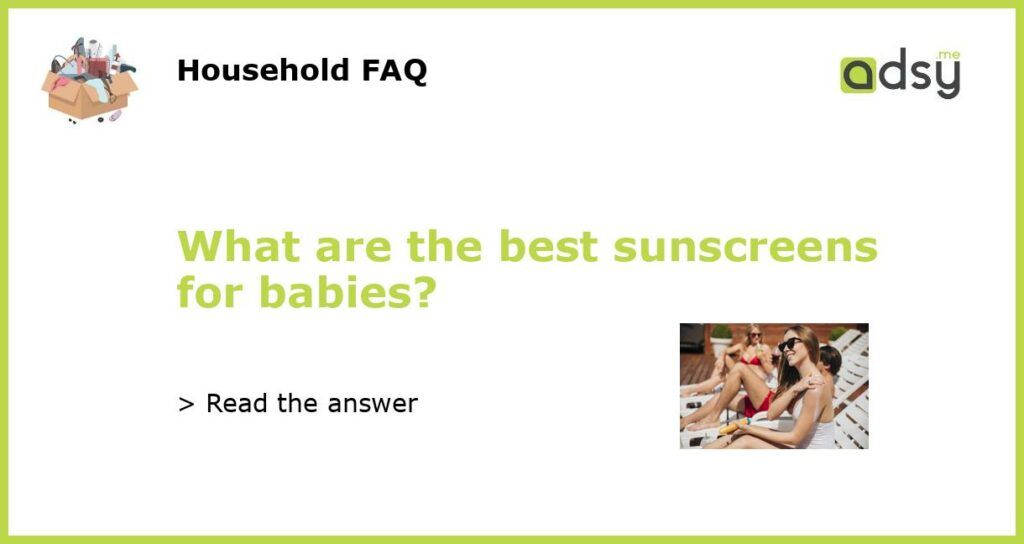The importance of choosing the right sunscreen for babies
Choosing the right sunscreen for your little one is essential to protect their delicate skin from the harmful effects of the sun. Babies have thinner and more sensitive skin compared to adults, making them more susceptible to sunburn and skin damage.
According to the American Academy of Pediatrics (AAP), it is recommended to avoid using sunscreen on babies under 6 months old, and instead, focus on other sun protection methods such as keeping them in the shade, using protective clothing, and using stroller shades or umbrellas.
For babies older than 6 months, selecting a suitable sunscreen becomes crucial. Here are some factors to consider when choosing the best sunscreen for your baby:
Look for a broad-spectrum sunscreen
A broad-spectrum sunscreen is one that provides protection against both UVA and UVB rays. UVA rays are longer and can penetrate deeper into the skin, contributing to premature aging and skin cancer. UVB rays are shorter and primarily cause sunburn. It is important to protect your baby from both types of rays to ensure their safety in the sun.
Check the label of the sunscreen and look for keywords like “broad-spectrum” or “UVA/UVB protection.” This will ensure that the product provides adequate protection against both types of UV rays.
Opt for a high SPF sunscreen
Sun Protection Factor (SPF) measures the level of protection a sunscreen offers against UVB rays. The higher the SPF, the more protection it provides. The AAP recommends using a sunscreen with an SPF of at least 30 for babies and children.
Keep in mind that higher SPF does not necessarily mean longer hours of sun protection. It is still important to reapply sunscreen every two hours or after swimming or sweating, even with high SPF sunscreens.
Choose a sunscreen specifically formulated for babies
Baby-specific sunscreens are formulated with the delicate skin of infants in mind. These sunscreens are often gentler, fragrance-free, and less likely to cause allergic reactions. Look for baby-specific sunscreens that are hypoallergenic and free of harsh chemicals such as oxybenzone or avobenzone.
Additionally, baby sunscreens often have thicker consistencies, making it easier to apply and less likely to run into their eyes.
Read reviews and consider recommendations
When choosing a sunscreen for your baby, it can be helpful to read reviews and consider recommendations from other parents or trusted sources. Look for sunscreen brands that are highly recommended and have positive customer reviews.
You can also consult with your pediatrician or dermatologist for their recommendations on the best sunscreen options for babies. They may have specific brands or types of sunscreens that they trust and recommend based on their expertise and knowledge of your baby’s specific needs.
Remember, sunscreen is only one part of sun protection for your baby. It is important to also seek shade, dress them in protective clothing, such as lightweight long-sleeved shirts and wide-brimmed hats, and avoid direct sun exposure during peak hours when the sun’s rays are the strongest.
By choosing the right sunscreen and implementing other sun protection measures, you can help keep your baby safe from the harmful effects of the sun’s rays.






